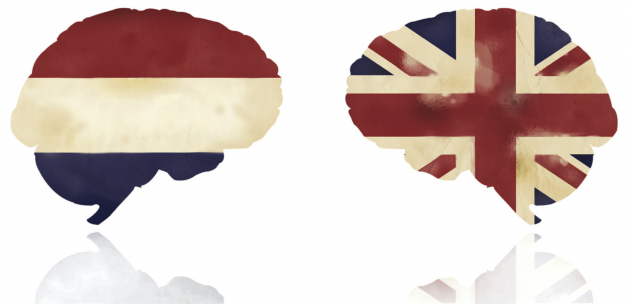Learning A Second Language Can Give You A Bigger Brain
Emerging research shows that knowing two or more languages can increase your brain’s cognitive abilities. And unlike many other scientific studies into the neurological benefits of language learning, these findings indicate that it doesn’t matter what age you start.
If you know more than one language, you’ll live longer and will have a more active mind than those who speak only their native tongue, according to a new report. In a study of 262 people ages 11-70, research by Annals of Neurology shows that learning a second language slows brain aging while improving verbal fluency and intelligence. They found the biggest areas of improvement for those who were able to speak multiple language versus those who could only speak one were general intelligence and reading.
Notably, in contrast to previous investigations into the neuroscience of language learning, the Annals of Neurology’s report did find that those who started learning a language before the age of 18 (195 of the 262 participants surveyed) enjoyed better cognitive abilities than those who learned language later in life (65 respondents).
Is Intelligence Related To Age?
One of the major underlying questions of scientific inquiry in this area is whether it make a difference to learn language at a young age or whether individuals have the same chances of developing better cognitive functions if you leave foreign language study until adulthood.
This breaking research amazingly concludes that it makes no difference whether the language was learned before the age of 18 or after.
Dr Thomas Bak, from the Centre for Cognitive Ageing and Cognitive Epidemiology at the University of Edinburgh says the report clearly demonstrates a correlation between speaking more than one language and having a higher level of intelligence, and it doesn’t matter at what age you acquire your second language.
“These findings are of considerable practical relevance,” Bak explains. “Millions of people around the world acquire their second language later in life. Our study shows that bilingualism, even when acquired in adulthood, may benefit the aging brain.”
Young vs. Old
So now we appreciate that learning a language can improve quality of later life, but what of these other studies: is there any advantage to learning a language at a younger age when your brain is more absorbent, or can it be just as easy to learn when you’re older?
Many reputable sources claim it’s easier to learn a language in pre-adolescence, such as Steven Pinker’s “The Language Instinct,” which explains that the language learning center of the brain is reduced following adolescence. According to Pinker, it’s better to start learning a language from a young age, a discovery with enough supporting evidence to encourage many countries to implement national policies of teaching children secondary language as early as Kindergarten.
But Don’t Be Misled By Selective Science
Linguistic researchers cited on The Telegraph discovered that adults can actually be better at learning languages for a number of reasons.
The newspaper’s first argument is that adults already have a pre-existing knowledge of language and understand how language works, whether that’s making the sounds and putting them together or building a sentence.
Although children may be better at mimicking the sounds an adult makes, because that’s how they learned their primary language when they were a baby, adults have more experience hearing foreign languages. It’s likely adults will have a stronger accent when speaking a foreign language, but it shouldn’t get in the way of being understood.
The only catch is when measuring fluency in a language, children have a lower threshold than adults, meaning it’s harder to become fluent as an adult. Consider how the demands on the adult having a conversation in a foreign language are of higher order than for a child. For example, an adult may need to conduct a business conversation in a secondary language. Such high stakes exchanges place clear value on being fully understood and call for more specific vocabulary and complicated sentence structures to get points across, but those are natural logistical challenges.
The Promise of Brain Betterment
Inspired and ready to start learning language and expanding your mind today? Demonstrate your commitment to whatever new tongue strikes your fancy and put yourself on the glide path to success by checking out the business and conversational language packages from Language Trainers’.
Do you think it’s harder to learn a language when you’re older? Tell us about your experiences below.

